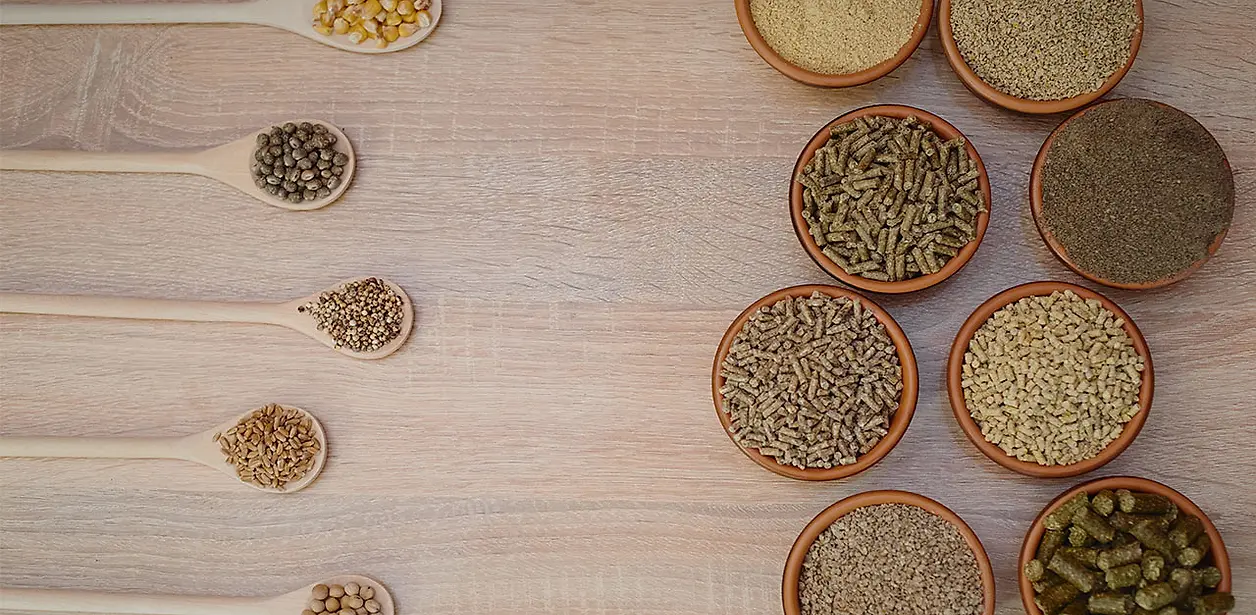ISO 77162 Crude Fat Testing in Camel Feed
The ISO 77162 standard is a cornerstone in the quality assurance of camel feed products, ensuring that feeds meet critical nutritional benchmarks for maintaining animal health and productivity. This test method specifically targets the determination of crude fat content within camel feed samples, which plays a crucial role in supporting the animals' energy requirements.
Crude fat testing involves measuring the total lipid content present in the feed sample without separating different types of lipids like fatty acids or triglycerides. The importance of this test cannot be overstated; it helps in assessing the nutritional value and potential caloric contribution to camel diets. Proper analysis ensures that the feed not only meets but also exceeds industry standards, thereby promoting the well-being of the animals.
The process typically involves several steps: sampling the feed, preparing the sample for testing, and then using a Soxhlet extraction method or other equivalent techniques to determine the crude fat content according to ISO 77162. The results are then analyzed against established benchmarks to ensure compliance with relevant standards.
Camels, like many livestock, require specific nutritional profiles in their feed for optimal health and performance. By conducting this test, producers can tailor feeds to meet these needs more precisely, leading to improved productivity and reduced waste. Additionally, accurate measurement of crude fat content is essential for regulatory compliance, particularly in regions where strict standards are enforced.
The significance of ISO 77162 extends beyond just camel feed; it sets a benchmark for the quality assurance practices in livestock nutrition globally. By adhering to this standard, laboratories and producers alike demonstrate their commitment to excellence and reliability. This not only enhances consumer trust but also fosters a competitive edge by differentiating products based on superior quality.
In conclusion, ISO 77162 Crude Fat Testing is an indispensable tool in the food & feed testing sector, providing precise measurements of crude fat content that are vital for maintaining animal health and productivity. Its application ensures compliance with international standards while offering a competitive advantage through enhanced product quality and reliability.
Applied Standards
The ISO 77162 standard is widely recognized in the food & feed testing sector, particularly for its rigorous approach to determining crude fat content. This method aligns with international standards that emphasize accuracy and consistency in analytical procedures. Some key aspects of this standard include:
- Sampling Techniques: The method specifies detailed sampling protocols to ensure a representative sample is taken from the feed batch.
- Preparation Process: It outlines steps for preparing samples, including drying and grinding, which are critical for obtaining accurate results.
- Extraction Methods: The standard recommends the Soxhlet extraction method as it provides precise and reliable measurements of crude fat content.
The application of ISO 77162 ensures that laboratories adhere to best practices, which are essential for maintaining consistent results across different testing facilities. This alignment with international standards enhances credibility and trust in the test outcomes.
Why Choose This Test
Selecting ISO 77162 Crude Fat Testing offers numerous advantages to those involved in camel feed production, quality assurance, and compliance:
- Precision Measurement: The test provides highly accurate measurements of crude fat content, ensuring that feeds meet the exact nutritional requirements for camels.
- Compliance Assurance: Adhering to this standard helps producers comply with local and international regulations regarding feed quality and safety.
- Informed Decision-Making: Accurate data on crude fat content allows for better decision-making in formulating feeds that optimize animal health and productivity.
- Competitive Edge: Consistently high-quality feeds can set products apart from competitors, enhancing brand reputation and market share.
In addition to these benefits, ISO 77162 Crude Fat Testing fosters a culture of excellence within the laboratory and production processes. It encourages continuous improvement and ensures that all aspects of feed formulation are meticulously considered.
Competitive Advantage and Market Impact
The implementation of ISO 77162 Crude Fat Testing in camel feed production provides significant competitive advantages and market impacts:
- Innovation Driving Efficiency: By adhering to this standard, producers can innovate more efficiently, focusing on developing feeds that not only meet but exceed industry expectations.
- Risk Mitigation: Ensuring compliance with international standards reduces the risk of regulatory penalties and consumer dissatisfaction.
- Premium Product Perception: High-quality feeds perceived as meeting stringent standards can command premium prices in the market, enhancing profitability.
- Customer Trust and Loyalty: Demonstrating commitment to quality through adherence to international standards builds trust with customers and fosters long-term loyalty.
The overall impact of ISO 77162 Crude Fat Testing is a positive one for both producers and consumers, contributing to the sustainable development of the livestock industry. By integrating this standard into their operations, companies can position themselves as leaders in quality assurance, thereby driving market competitiveness and growth.





